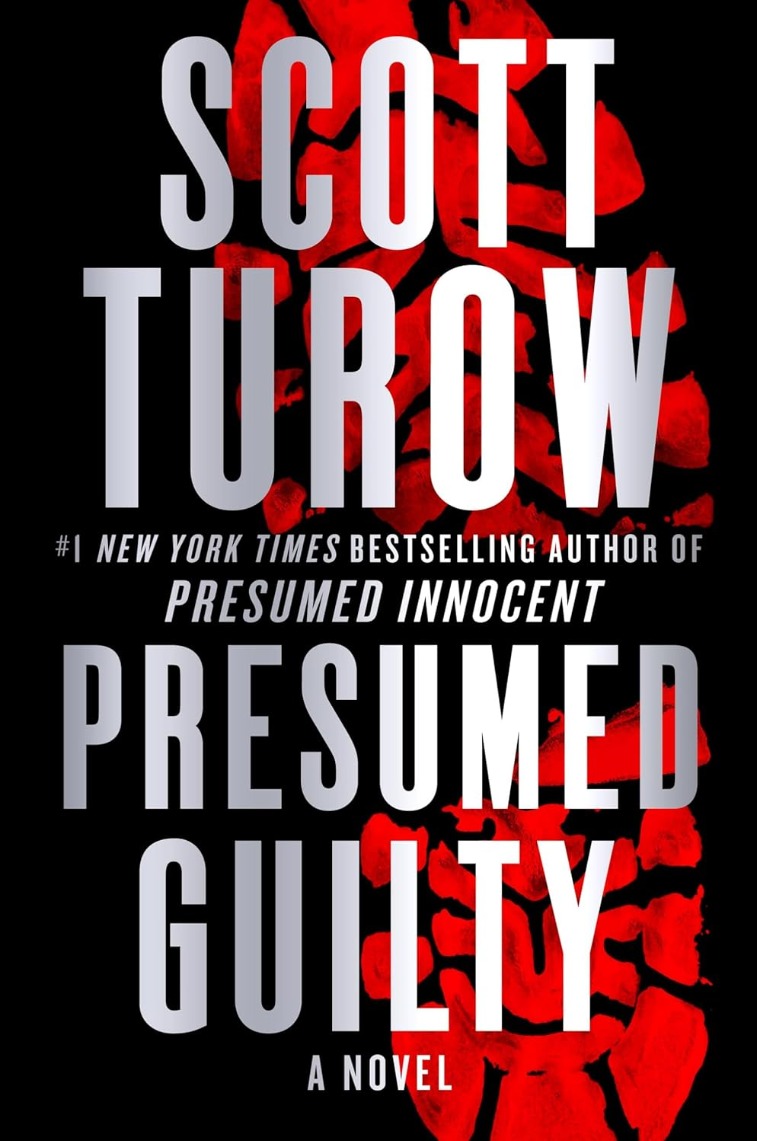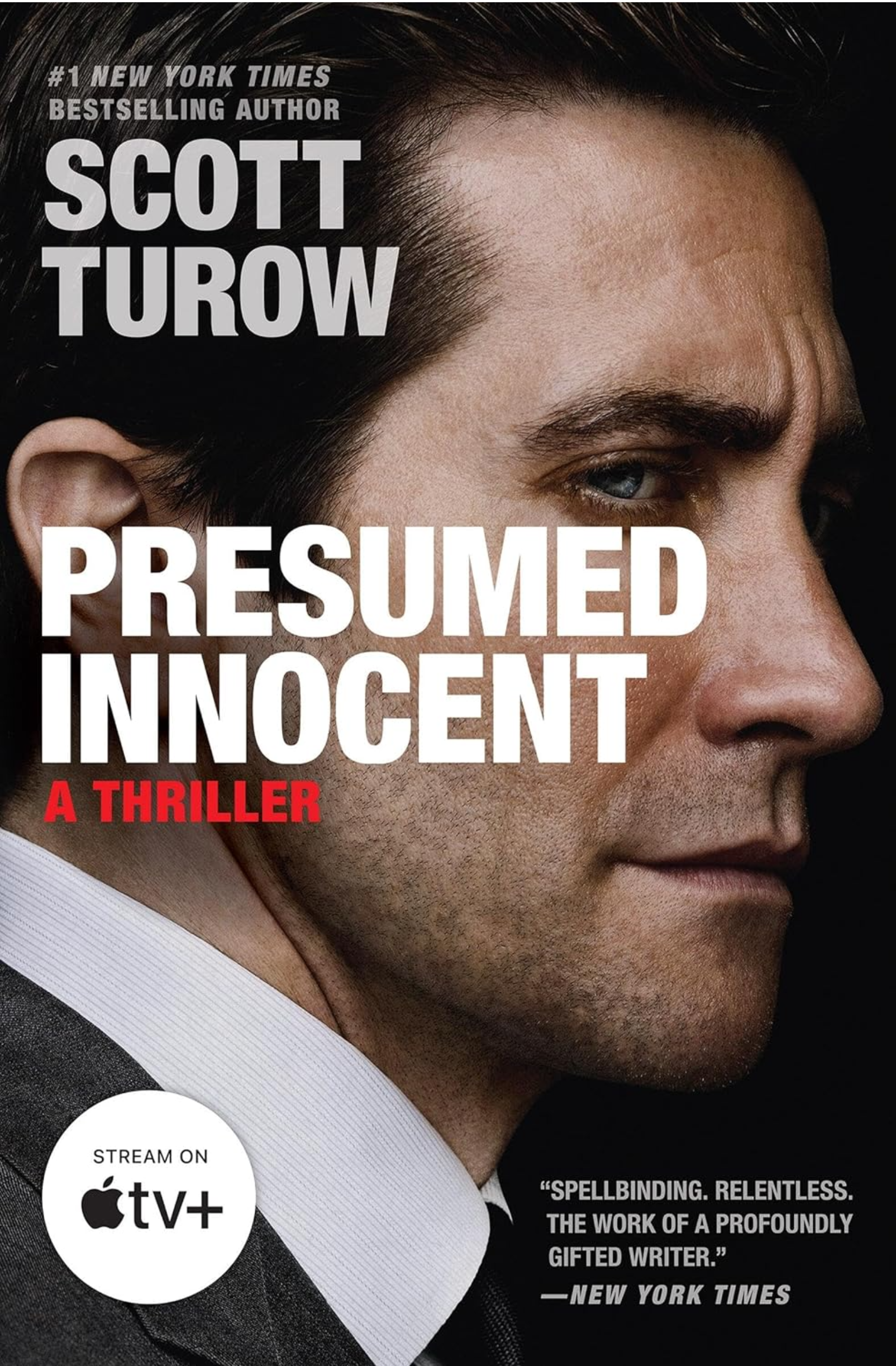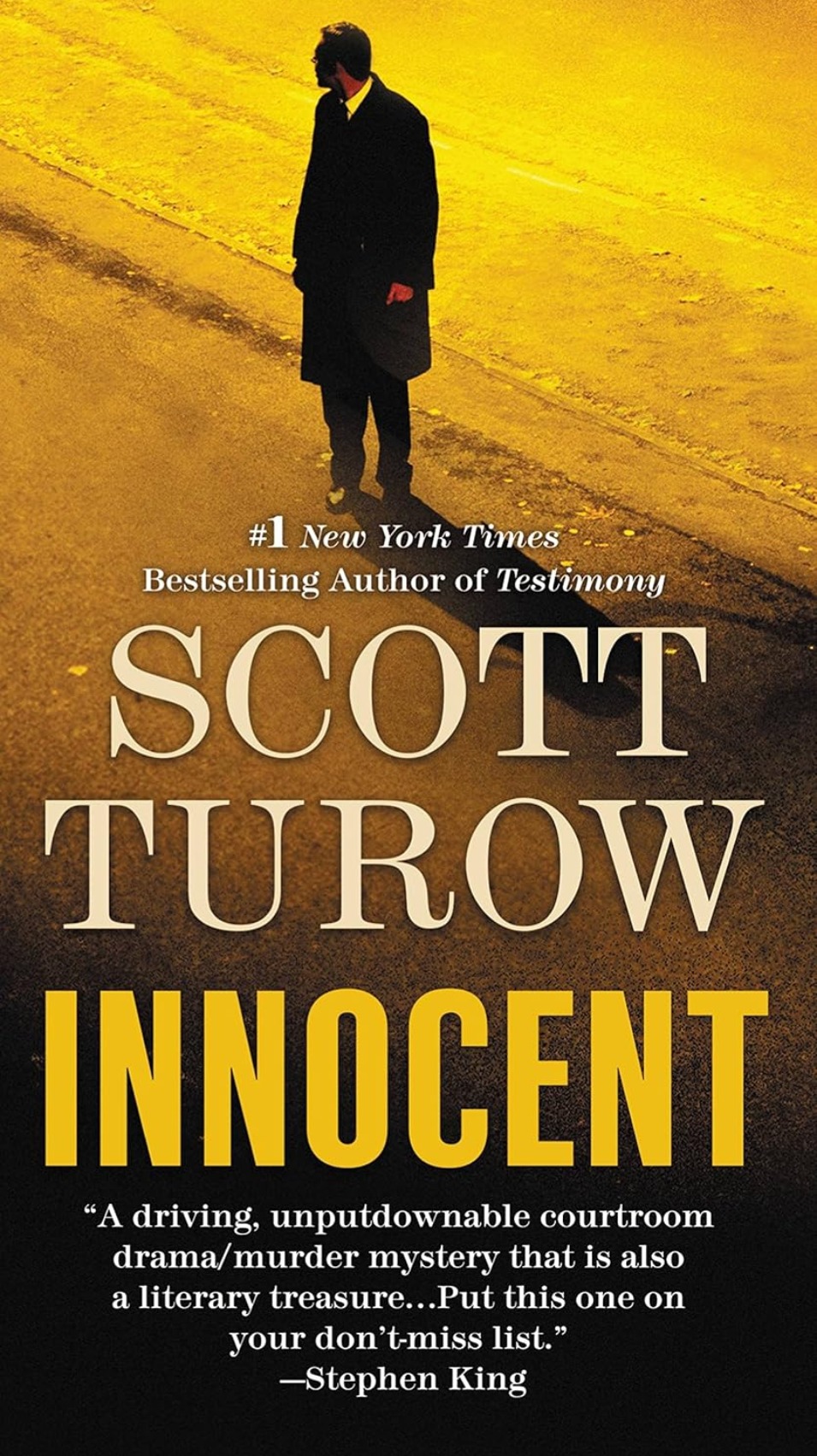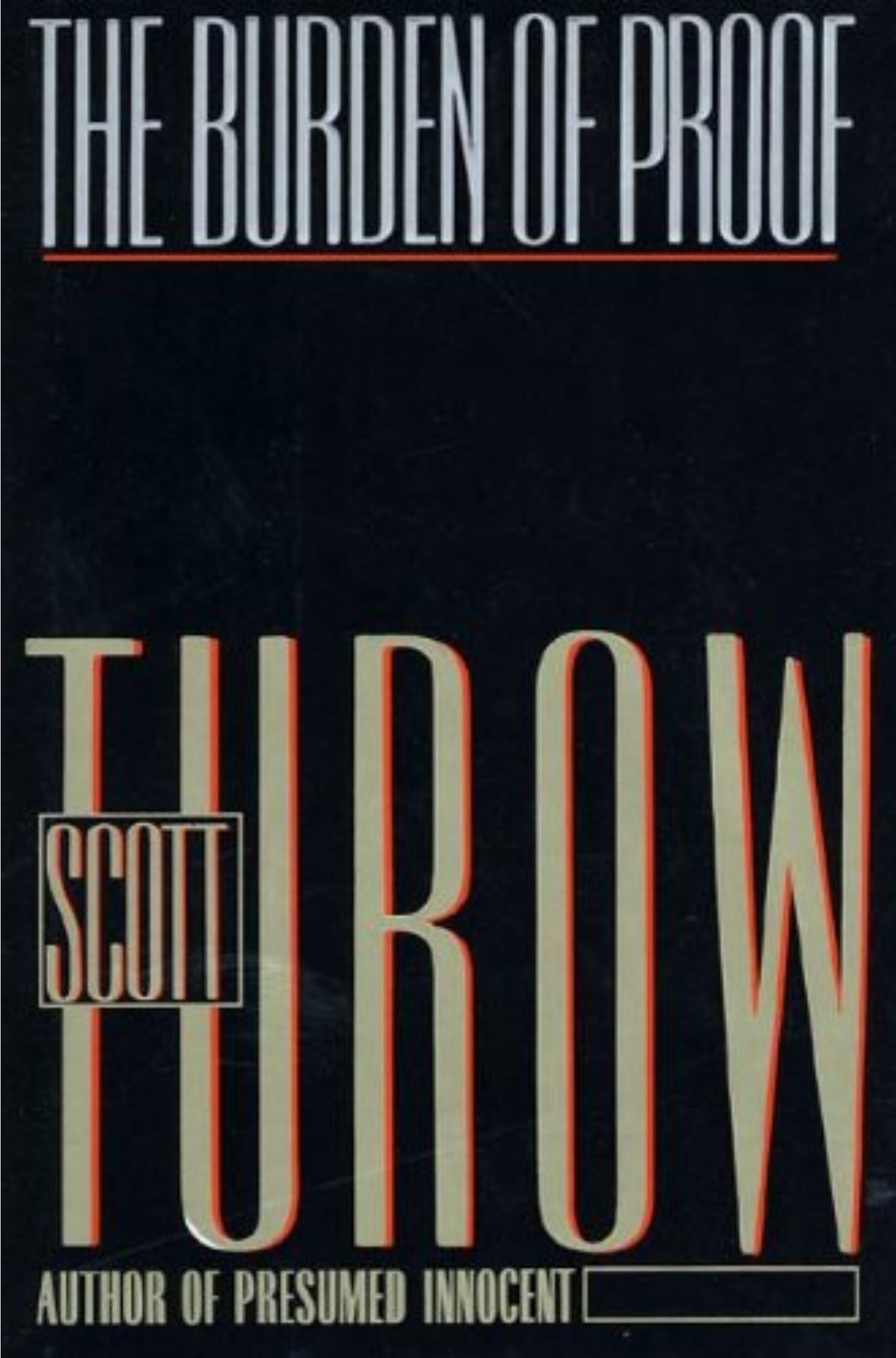Scott Turow is not the most prolific author out there. In a career spanning almost 40 years, he has written only 14 novels. But what he lacks in terms of output, he more than makes up for in quality. His latest, Presumed Guilty, is the third to feature former Prosecuting Attorney Rusty Sabich. Nearly 40 years after Turow and Rusty made their fictional debuts in Presumed Innocent, the now-retired attorney finally gets to show off his legal skills in court. The wait is definitely worth it for Turow’s fans.
In Turow’s first two Sabich novels, Rusty was twice accused of and tried for murder. Like Michael Connelly’s Harry Bosch, Rusty has aged in the fictional decades since his first appearance. He’s now in his 70s, retired (except for some arbitrations and mediations he handles), and living in a rural county a few hours away from Kindle County, the site of Turow’s earlier books. He also has a cozy relationship with a live-in fiancée, Bea, 20 years younger than him. But in the words of Michael Corleone: “Just when I thought I was out, they pull me back in.” Rusty and Bea’s serenity is shattered when her black adopted son, Aaron, is arrested for the murder of his girlfriend, Mae.
Both Aaron and Mae had long histories of drug abuse, and when arrested, Aaron was on probation. Aaron claims he’s turned his life around, but the facts against him are strong. The couple went camping to work out their difficulties, and Aaron returned alone a couple of days later with Mae’s phone. He claimed to have taken it following an argument. However, when her body was found two weeks later in her car in a remote area, Aaron was arrested. To make matters worse, Mae was the daughter of the local prosecuting attorney who wanted to make sure Aaron paid for the crime, even though it was being tried in another county. Although Rusty is somewhat rusty as a trial attorney (he’s only had one jury trial as a defense attorney), he realizes no other local defense attorneys will be able to adequately defend Aaron.
The story’s setup I just described comprises the first quarter of Presumed Guilty. The author has to cram considerable backstory about Rusty, Bea, Aaron, Mae, and others into a relatively few pages. Instead of a barebones recitation of facts, Rusty philosophizes at length, and the result is a sometimes dull and disjointed narrative. However, once Rusty represents Aaron, the narrative jumps ahead several months until the start of the trial. Turow’s description of the trial occupies almost the entire rest of the book.
In the movies or on television, criminal trials take only a few minutes of on-camera time. As anyone who watched the O.J. Simpson trial remembers, the actual courtroom proceedings take days or weeks, much of it occupied by tedious preliminary questioning of witnesses. Turow recounts almost the entire trial in Presumed Guilty from opening statements until the conclusion of testimony. (He omits the closing statements.) The editing and condensation of testimony are seamless. Readers feel they are experiencing each witness’s testimony in its entirety. Further, Turow doesn’t just recreate the trial transcript. Instead, Rusty serves as an expert commentator as well as a participant. He describes why he and the prosecuting attorney called specific witnesses and asked specific questions. The opening statements, in particular, occupy a lengthy chapter apiece. Rusty’s (and the author’s) ruminations aren’t limited to the time that court is in session. Recesses and daily adjournments give Rusty and his investigator an opportunity to do research, investigate new leads, and debate upcoming strategies. Even before Rusty took the case, his lawyerly mind was at work when he gave his thoughts on the ramifications of the police’s search of his property for evidence against Aaron.
The result of the author’s detailed analysis is the most fascinating literary depiction of a criminal trial I’ve ever read. The narrative never gets bogged down in legal obscurities or trivialities, even when Turow recounts the testimony of minor witnesses. Instead, he shows how an experienced litigator uses all types of testimony (and in what order he introduces the testimony) to advance his case. The author also shows how and when Rusty cross-examines witnesses for maximum effect. Turow also introduces some terminology with which many lay readers may be unfamiliar, like a Brady hearing (referring to the Supreme Court case requiring the prosecution to turn over all evidence in its possession favorable to the defense).
The author also uses Rusty as a sounding board for some discussions removed from the facts of this case. Aaron is a young black defendant with a criminal record accused of the brutal murder of a white woman. The case is being tried in a rural county with few black residents, and Rusty has to consider any inherent biases the jury may have and how to counter them. The author also brings up the notion of confirmation bias regarding an eyewitness who saw Aaron’s last argument with Mae.
Those who have read Scott Turow’s earlier books may suspect that Presumed Guilty will contain some surprises, and it does. Previously hidden information that helps explain some of the earlier events comes out during the trial. Also, readers who enjoy traditional whodunits will be pleased to know that the author explains how the girlfriend’s death actually occurred.
Presumed Guilty is a long book, but readers will not want to put it down once the trial starts. I’ve read many legal thrillers, but this novel is the best at describing a fictional trial, with its mix of plausible testimony and incisive analysis. Readers will feel they are in the courtroom with Rusty and Aaron, experiencing the trial’s ups and downs from day to day. This book would have been better if the author had spent more time establishing the main characters in the beginning, but that’s a mere quibble. Scott Turow has taken his time providing readers with the legal encounters of Rusty Sabich, but the delay has been worth it. Presumed Guilty is as finely crafted and fascinating a legal thriller as readers are going to find.
NOTE: The publisher graciously provided me with a copy of this book through NetGalley. However, the decision to review the book and the contents of this review are entirely my own.
In this clip, author Scott Turow discusses Presumed Guilty with Barbara Peters of the Poisoned Pen Bookstore:
Read other reviews of Presumed Guilty:
Scott Turow, a former practicing lawyer, is the author of fourteen bestselling works of fiction, including Presumed Innocent, its sequel, Innocent, and The Burden of Proof. He has also published two nonfiction books, including One L, about his experience as a law student. His books have been translated into more than forty languages, sold more than thirty million copies worldwide, and have been adapted into movies and television projects. He has frequently contributed essays and op-ed pieces to publications such as the New York Times, Washington Post, Vanity Fair, the New Yorker, and the Atlantic.
Before becoming a writer, Turow was an Assistant United States Attorney in Chicago, serving as lead prosecutor in several high-visibility federal trials investigating corruption in the Illinois judiciary. In 1995, in a major pro bono legal effort he won a reversal in the murder conviction of a man who had spent 11 years in prison, many of them on death row, for a crime another man confessed to. In private practice, he specialized in white-collar criminal litigation.
Header Photo: "Riot Radio" by Arielle Calderon / Flickr / CC By / Cropped
Silver Screen Video Banner Photos: pedrojperez / Morguefile; wintersixfour / Morguefile
Join Button: "Film Element" by Stockphotosforfree
Twitter Icon: "Twitter Icon" by Freepik
Facebook Icon: "Facebook Icon" by Freepik
LinkedIn Icon: "LinkedIn Icon" by Fathema Khanom / Freepik
Goodreads Icon: "Letter G Icon" by arnikahossain / Freepik
Certain images on this site appear courtesy of Amazon.com and other sponsors of Silver Screen Videos for the purpose of advertising products on those sites. Silver Screen Videos earns commissions from purchases on those sites.
© 2025 Steven R. Silver. All rights reserved.







